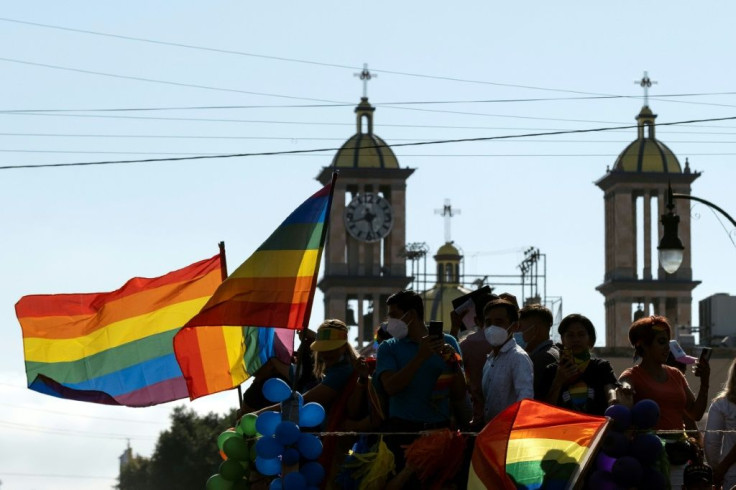HIV-positive Man's Arrest Puts Mexican Law In Spotlight
The arrest of a man accused of failing to tell a partner that he had HIV has sparked fresh controversy about a Mexican law that campaigners say is outdated and discriminatory.
Prosecutors in the capital drew criticism for releasing images of the man, identified as Juan "N," after his detention in June at a time when the country was celebrating sexual diversity and inclusion.
In Mexico, knowingly putting someone in danger of infection with a sexually transmitted or serious disease is a crime punishable by up to five years in prison.
"What the crime does is criminalize people who live with any health condition, be it HIV or any other," said Geraldina Gonzalez de la Vega, president of the Mexico City authorities' Council to Prevent and Eliminate Discrimination.
Alleged breaches of the law have escalated amid the Covid-19 pandemic.
In 2020, prosecutors in the capital opened 78 investigations into accusations of people putting others in danger of infection.
Another 52 have been launched this year, according to official data that does not specify the diseases involved.
But compared with the nine such complaints in 2018 and 12 in 2019, the impact of the coronavirus is evident.
Although there are no reports of new detentions, Gonzalez de la Vega considers it "deeply stigmatizing" to criminally investigate a Covid-19 patient.
With 2.7 million confirmed coronavirus cases and more than 238,000 deaths, Mexico is one of the countries hardest hit by the pandemic.
The law was prompted by the HIV/AIDS epidemic, which led to a toughening of the capital's penal code in the 1990s.
But it is unnecessary because someone who fraudulently infects another can be prosecuted under other laws used to deal with inflicting injuries, Gonzalez de la Vega said.
Academic studies have argued that the law reflects decades-old moralisms in the Catholic-majority country, such as punishing promiscuous behavior.
Jaime Morales, director of sexual diversity for the capital government, now works to train and sensitize the personnel who revealed the man's identity.

"It is illegal," Morales said.
The man's detention, which lasted a week, followed a complaint by his ex-partner who, lawyers allege, was deceived and put at risk.
The prosecution said Juan "N" was arrested for failing to respond to subpoenas.
The judge granted him release pending trial.
AFP contacted Juan "N" and his defense team, but they declined to comment while legal proceedings are underway.
The crime of which the man is accused is also anachronistic from a medical perspective, campaigners say.
For two decades, antiretroviral drugs have successfully reduced HIV until it is undetectable and therefore non-communicable, while prevention methods including condoms can also significantly reduce the risk of infection.
"A person who has it totally under control does not transmit the virus to their partners," said Sergio Montalvo, a doctor at a public clinic in the capital specializing in HIV.
Any person with HIV has the choice whether to share their diagnosis, he said.
In 2020, 342 new cases of HIV were diagnosed in Mexico City, out of 9,220 throughout the country, according to official figures.
The case of Juan "N" has opened the door to the possible repeal of the contentious law.
Temistocles Villanueva, a lawmaker for the ruling Morena party, plans to present such a proposal in the capital's legislature in August.
"It is an intervention by the state in people's private life, in their sexual relations," said Villanueva, who does not believe criminalization reduces infection.
"What it does is make people hide their state of health so as not to risk being accused," he said.
© Copyright AFP 2024. All rights reserved.











